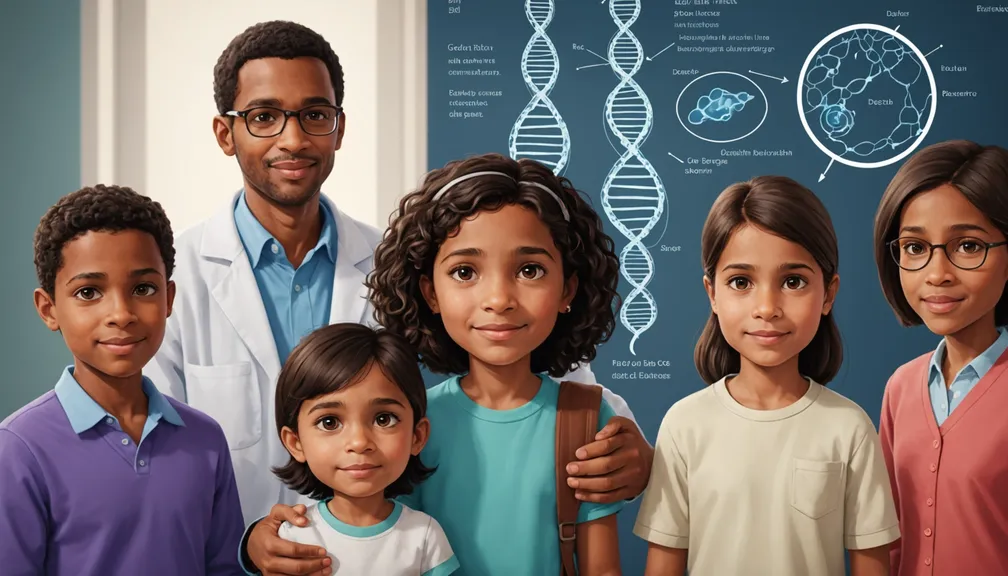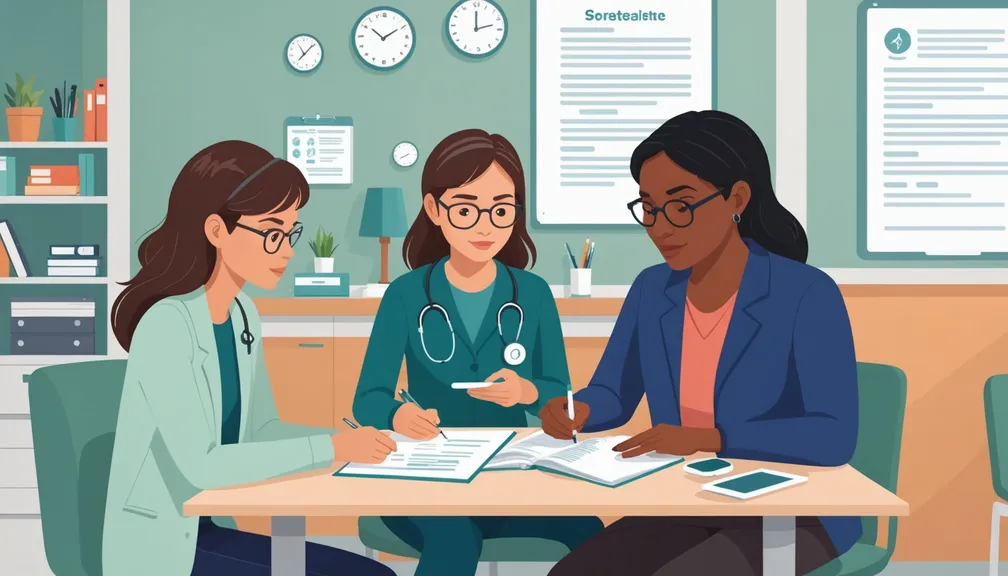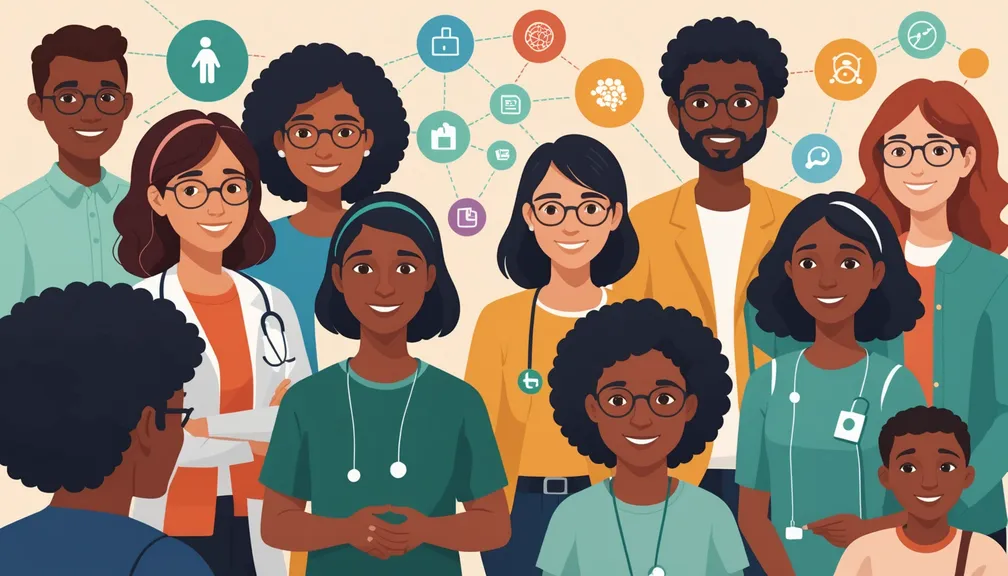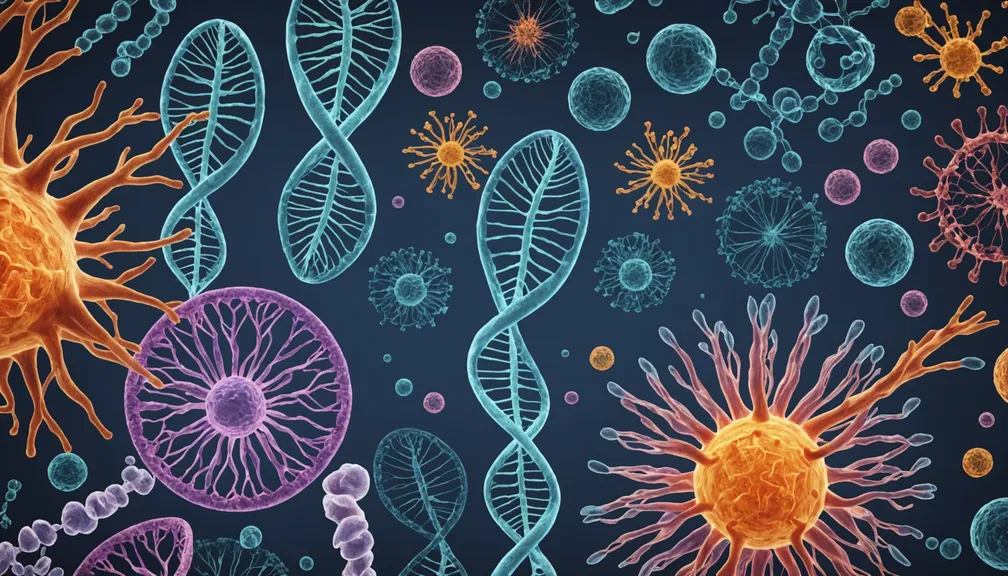Genetic Testing and Counseling: Preparing for the Journey
Understanding Genetic Testing
Genetic testing is a powerful tool that helps identify changes in your DNA that may indicate a genetic disorder. These tests can reveal whether you have a specific genetic condition, carry a gene mutation that could be passed to your children, or help predict the risk of developing certain diseases.
Types of Genetic Tests
- Diagnostic Testing: Confirms or rules out a specific genetic condition when symptoms are present.
- Predictive and Pre-symptomatic Testing: Assesses the risk of developing a genetic condition before symptoms appear.
- Carrier Testing: Determines if you carry a gene mutation for a recessive genetic disorder, which could be passed to your children.
- Prenatal Testing: Detects genetic abnormalities in a developing baby.
- Newborn Screening: Identifies genetic disorders shortly after birth to ensure timely treatment.
The Genetic Testing Process
- Initial Consultation:
- Meet with a genetic counselor or specialist to discuss your family and medical history.
-
Understand the purpose, benefits, and limitations of the test.
-
Sample Collection:
- Provide a sample, usually blood, saliva, or a cheek swab.
-
The procedure is typically simple and painless.
-
Laboratory Analysis:
- Your sample is analyzed in a laboratory for specific genetic changes.
-
The time required for results can vary from a few weeks to several months.
-
Receiving Results:
- Attend a follow-up appointment to discuss the findings.
- Learn what the results mean for your health and future planning.
Benefits of Genetic Testing
- Early Diagnosis: Identifies conditions early, allowing for timely intervention and management.
- Informed Decision-Making: Provides critical information for making decisions about family planning and lifestyle choices.
- Personalized Treatment: Helps healthcare providers choose treatments tailored to your genetic makeup.
- Family Planning: Assists in understanding the risk of passing genetic conditions to children, enabling informed family planning decisions.
Potential Challenges and Considerations
- Emotional Impact: Receiving genetic information can be emotionally challenging and may require support.
- Privacy Concerns: Ensuring your genetic information remains confidential is essential.
- Insurance and Employment: Understanding your rights regarding genetic information to protect against potential discrimination.
- Test Accuracy: No test is 100% accurate. False positives or negatives can occur, so it's important to discuss possible outcomes with your counselor.
Genetic Counseling
Genetic counseling is a crucial part of the genetic testing process. It involves:
- Risk Assessment:
-
Evaluating your personal and family medical history to estimate the likelihood of a genetic condition.
-
Education:
- Providing detailed information about the genetic condition and available testing options.
-
Explaining the benefits, risks, and limitations of genetic testing.
-
Support:
- Helping you cope with emotional responses to testing and results.
-
Assisting in decision-making regarding testing and management strategies.
-
Resource Referral:
- Connecting you with support groups, specialists, and other helpful resources.
Preparing for Genetic Testing
- Gather Family Medical History:
- Document any known genetic conditions in your family.
-
Note the ages at which family members were diagnosed to provide a comprehensive history.
-
List Medications and Health Conditions:
-
Provide your healthcare provider with information about current and past health conditions and medications.
-
Prepare Questions:
-
Write down any questions or concerns you have about the testing process and potential results.
-
Consider Support:
- Bring a family member or friend to appointments for support and to help remember information discussed.
After Genetic Testing
Understanding Your Results
- Positive Result: Indicates that you have a genetic mutation associated with a specific condition.
- Negative Result: Suggests that you do not have the genetic mutation tested for, but it does not rule out other possibilities.
- Variants of Uncertain Significance: Genetic changes that are not yet fully understood, requiring further research or testing.
Next Steps Based on Results
- Positive Result:
- Develop a management plan with your healthcare provider.
-
Inform family members who may also be at risk and consider their testing options.
-
Negative Result:
- Reevaluate your symptoms and consider other diagnostic options if necessary.
-
Continue regular health check-ups to monitor your well-being.
-
Uncertain Result:
- Stay informed about new research and developments related to your genetic findings.
- Discuss the possibility of additional testing with your counselor to gain more clarity.
Support for Patients and Families
- Counseling Services:
-
Access emotional support to help cope with a diagnosis and its impact on your life.
-
Support Groups:
-
Connect with others who are experiencing similar challenges, providing mutual understanding and encouragement.
-
Educational Resources:
-
Learn more about the genetic condition, its management, and strategies for improving quality of life.
-
Financial Counseling:
- Receive assistance in understanding insurance coverage options and managing the costs associated with treatment and care.
Health Professionals to Consult
- Genetic Counselor: Offers guidance on genetic testing and helps interpret the results.
- Medical Geneticist: Specialist who diagnoses and manages genetic disorders.
- Primary Care Physician: Coordinates your overall healthcare and makes necessary referrals to specialists.
- Specialists (e.g., Neurologist, Cardiologist): Provide targeted care for specific aspects of your condition.
- Psychologist or Psychiatrist: Offers mental health support to help you cope with emotional challenges.
- Social Worker: Assists in navigating resources, support services, and managing daily living tasks related to your condition.
This lesson aims to provide clear and comprehensive information to help you navigate the journey of genetic testing and counseling. Remember, you are not alone, and a team of healthcare professionals is available to support you every step of the way.






